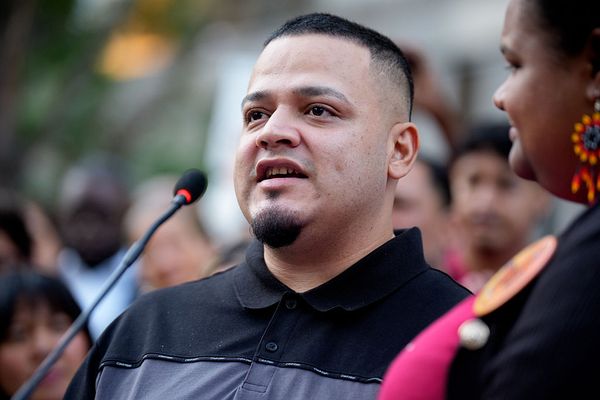
Civil service unions have entered talks with the government on pay, believing ministers may finally be willing to offer more money to match rises given to health and teaching staff.
Two unions, Prospect and the FDA, said they would be suspending strike action and ballots because the government said it was willing to engage in “meaningful” talks.
PCS, the biggest civil service union with more than 100,000 members, also confirmed it had received the offer of talks and would be attending.
Mike Clancy, the general secretary of Prospect, which represents tens of thousands of technical and specialist staff such as government scientists, said his union was “entering these talks in good faith, hence our calling off the strike action due for 7 June”.
He added, however: “We will maintain our action short of a strike and review that position in light of the talks that are promised. Throughout this dispute, we have made clear that our members should not be treated worse than other workers in the public sector and that they deserve a pay deal that recognises the cost of living crisis that began last year.”
The FDA, which represents senior civil servants, said its executive voted on Friday to suspend the ballot for strikes.
Dave Penman, its general secretary, said the union’s decision to ballot nationally for industrial action over pay had been the first in 40 years.
He said: “It was intended to send a clear message to the government that enough was enough, as they had failed to demonstrate that they valued the civil service equally with the rest of the public sector. The invitation to talks is the first indication that this message has been heard.
“Industrial action is never an end in itself, it is a means to an end. All we have asked is for the civil service to be treated fairly and with respect – the approach to pay in 2023 was one way of demonstrating this.”
Unions were involved in talks earlier in the spring but were blindsided in May with a pay offer that was substantially less generous than for other public sector workers. The deal imposed an average pay rise of between 4.5% and 5%, without any lump sum cost of living payment, and was presented as non-negotiable.
At the time, Mark Serwotka, the general secretary of the PCS, said it was an “insulting proposal” and would “serve only to anger PCS members, stiffen their resolve ahead of the forthcoming reballot and increase the likelihood of a new wave of sustained strike action”.
The PCS action has hit a range of public services in recent months, from border checks to driving tests.
The first meeting between the unions and the Cabinet Office took place on Friday afternoon.
A Cabinet Office spokesperson said: “The government has maintained an open dialogue with unions and as part of this ongoing engagement we have met with the respective unions to understand what role the Cabinet Office may play in resolving their concerns and avoiding industrial action wherever possible.”







